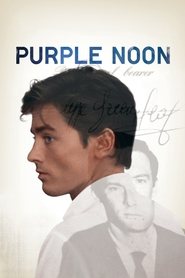Clément’s decision to curtail Ripley’s triumph at the end is very much in line with the cinematic conventions of the time, but also evidently reflects the director’s sense that the punishment of transgression “somehow . . . reassures people.” Cinematically, however, he still gives Tom the final victory: in our last glimpse of him, as he strides, unaware, toward a police stakeout, he is still free and savoring the completeness with which he has realized his desires.[…]
The emotional entanglements of the Tom-Marge-Philippe triangle and the slipperiness of Tom’s inner life allow multiple readings. The subtext of what we witness is open-ended and limitless in its ambiguity. However precise and elegant its surfaces, Purple Noon remains tantalizingly elusive, a beautifully made object always just out of reach—in that respect, just like its source novel.
— Geoffrey O'Brien (Criterion)
While the movie’s early scenes are photographed with an icy, handheld fluidity (as befits the malevolent if careful observance of action by the main character), the visuals of the film’s second half tighten with Ripley’s schemes, settling into a pseudo-Hitchcockian rhythm of reverse shots and putatively pulse-quickening dollies. This mechanical aesthetic suggests that rather than having to sublimate what remorse he might feel toward his actions, Ripley simply doesn’t experience any.
The young Alain Delon, who in 1960 had not yet matured into his full status as a matinee idol, seems young and callow, which is right for the role; Purple Noon is essentially about an aimless young man who has stumbled onto his life's work.

